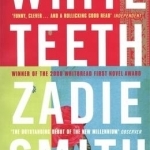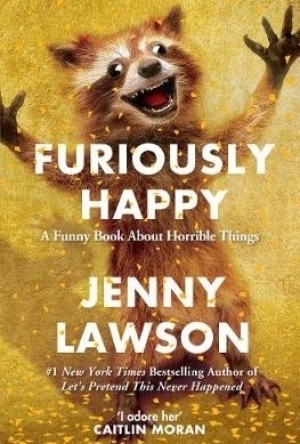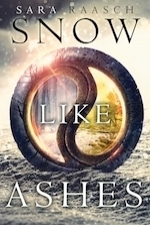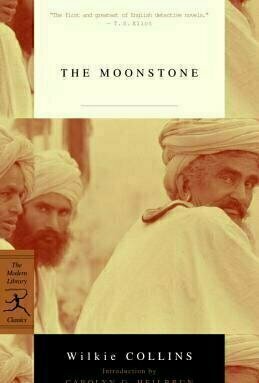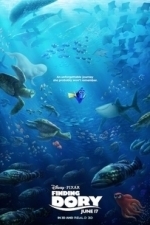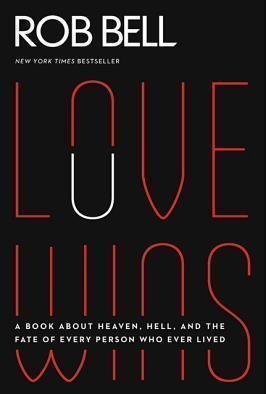Search
Search results
Kaz (232 KP) rated White Teeth in Books
May 15, 2019
A Disappointing Read
What the 'blurb' says:
'One of the most talked about debut novels of all time, White Teeth is a funny, generous, big-hearted novel, adored by critics and readers alike. Dealing - among many other things - with friendship, love, war, three cultures and three families over three generations, one brown mouse, and the tricky way the past has of coming back and biting you on the ankle, it is a life-affirming, riotous must-read of a book.'
My Thoughts:
This novel has had quite a lot of attention over the past few years, particularly on BookTube. So when I saw it in my local charity shop, I decided to give it a go. I have to admit that upon starting it, I had very high expectations of it, so I was quite disappointed by the end.
First, the positives. This is had some very good writing within it.. The way in which Zadie Smith writes, is funny and the characters were very believable.
But the plot itself, was the main problem I had with this book. At the beginning, certain characters had a lot of attention and their stories seemed to be developing nicely and some of the things that happened to them, were really intense. But then suddenly, all of the focus of this story was completely shifted, onto another character and those who initially seemed important, became secondary characters, who were hardly mentioned in the rest of the book. Then, more and more characters were added, without fully focusing on any one person. This meant that, by the end of the book, even though they believeable, I really didn't feel like I knew any of them
Partly due to this, and the fact that every chapter felt like an individual short story, this made the flow of the plot stop and start all of the time, and, although some chapters were really enjoyable, for me, they didn't link together well.
Randomly also, there were almost essay-like chapters, which talked about the ideas of identity and race within a multicultural society. Even though these were really interesting and thought provoking, they didn't seem to belong within the story itself. So for me, the organization of the plot was really weak.
The most disappointing thing for me, was the end. The different strands of story did kind of come together towards the end. It was all building up to something that I thought, would make a powerful ending.
However, it felt like Zadie Smith had run out of energy by the end and couldn't be bothered to gives us readers a plausible and realistic conclusion. For some characters, they didn't really have any resolution at all. This made me feel frustrated about investing time on this book.
I think this book had some interesting ideas and the style of writing was really good, but the plot was terrible. This is shame, because this could have been brilliant..
My Rating ***
'One of the most talked about debut novels of all time, White Teeth is a funny, generous, big-hearted novel, adored by critics and readers alike. Dealing - among many other things - with friendship, love, war, three cultures and three families over three generations, one brown mouse, and the tricky way the past has of coming back and biting you on the ankle, it is a life-affirming, riotous must-read of a book.'
My Thoughts:
This novel has had quite a lot of attention over the past few years, particularly on BookTube. So when I saw it in my local charity shop, I decided to give it a go. I have to admit that upon starting it, I had very high expectations of it, so I was quite disappointed by the end.
First, the positives. This is had some very good writing within it.. The way in which Zadie Smith writes, is funny and the characters were very believable.
But the plot itself, was the main problem I had with this book. At the beginning, certain characters had a lot of attention and their stories seemed to be developing nicely and some of the things that happened to them, were really intense. But then suddenly, all of the focus of this story was completely shifted, onto another character and those who initially seemed important, became secondary characters, who were hardly mentioned in the rest of the book. Then, more and more characters were added, without fully focusing on any one person. This meant that, by the end of the book, even though they believeable, I really didn't feel like I knew any of them
Partly due to this, and the fact that every chapter felt like an individual short story, this made the flow of the plot stop and start all of the time, and, although some chapters were really enjoyable, for me, they didn't link together well.
Randomly also, there were almost essay-like chapters, which talked about the ideas of identity and race within a multicultural society. Even though these were really interesting and thought provoking, they didn't seem to belong within the story itself. So for me, the organization of the plot was really weak.
The most disappointing thing for me, was the end. The different strands of story did kind of come together towards the end. It was all building up to something that I thought, would make a powerful ending.
However, it felt like Zadie Smith had run out of energy by the end and couldn't be bothered to gives us readers a plausible and realistic conclusion. For some characters, they didn't really have any resolution at all. This made me feel frustrated about investing time on this book.
I think this book had some interesting ideas and the style of writing was really good, but the plot was terrible. This is shame, because this could have been brilliant..
My Rating ***
Zuky the BookBum (15 KP) rated Mammoth in Books
Mar 15, 2018
Also find my review here: http://bookbum.weebly.com/book-reviews/mammoth-by-douglas-perry
NOW AVAILABLE IN THE UK!
Thank you to Netgalley and Amberjack Publishing for giving me the opportunity to read this in an exchange for a review.
Not quite what I was expecting, which I think is the general feel judging by others reviews. Be warned, this isnt a creepy paranormal, alien type of thing. I dont think thats a spoiler either, I wouldnt want you to pick this up and be greatly disappointed. If you love character focused novels then this will be your kind of book! This gives you some really in depth information about each of the characters, but it can get confusing because there are <i>so</i> many characters! There are <b>eleven</b> main characters, plus more characters that relate to these characters in little sub plots.
<u>Characters: </u>
Tori
Billy & Becky
Jackson & Sam
Hicks & Lloyd
Oscar - King
Melvin & Gordon
Winnie Lloyd
If you find it difficult to keep up with lots of different people in books then this wont be for you. It can get a little confusing at times and I often forgot what was happening to one character by the time we got back to reading about them after having read about 4 characters in between.
I though this novel was superbly written. Possibly one of the best written books Ive read in quite a while! There is some really grotesque imagery in this book, not in a violent way though, so I wouldnt give it any trigger warnings, though rape is implied. My only problem with the writing was that sometimes it was really difficult to understand where the characters were in Mammoth View or Bakersfield or what. That was my one annoyance, I wasnt able to keep a grip on where each character was.
In terms of the plot that there was, which wasnt much, it was an interesting storyline. Lots of things going on a once which could definitely add to the confusion. I feel as though Perry had created seven(ish) separate short stories and then tried to mash them into one which in my opinion worked. I felt let down by the ending in a way but at the same time I thought it was really unique. You do find out why panic ensues in the small town of Mammoth View and I can bet you wont see it coming Though now Ive told you its not paranormal or aliens then maybe you might
If you like to really get to know a character and dont really care about a well developed plot then this book is a definite read for you, but if youre expecting something scary or creepy form this then dont bother as it isnt that kind of thing. I will definitely look out for more of Perrys work!
NOW AVAILABLE IN THE UK!
Thank you to Netgalley and Amberjack Publishing for giving me the opportunity to read this in an exchange for a review.
Not quite what I was expecting, which I think is the general feel judging by others reviews. Be warned, this isnt a creepy paranormal, alien type of thing. I dont think thats a spoiler either, I wouldnt want you to pick this up and be greatly disappointed. If you love character focused novels then this will be your kind of book! This gives you some really in depth information about each of the characters, but it can get confusing because there are <i>so</i> many characters! There are <b>eleven</b> main characters, plus more characters that relate to these characters in little sub plots.
<u>Characters: </u>
Tori
Billy & Becky
Jackson & Sam
Hicks & Lloyd
Oscar - King
Melvin & Gordon
Winnie Lloyd
If you find it difficult to keep up with lots of different people in books then this wont be for you. It can get a little confusing at times and I often forgot what was happening to one character by the time we got back to reading about them after having read about 4 characters in between.
I though this novel was superbly written. Possibly one of the best written books Ive read in quite a while! There is some really grotesque imagery in this book, not in a violent way though, so I wouldnt give it any trigger warnings, though rape is implied. My only problem with the writing was that sometimes it was really difficult to understand where the characters were in Mammoth View or Bakersfield or what. That was my one annoyance, I wasnt able to keep a grip on where each character was.
In terms of the plot that there was, which wasnt much, it was an interesting storyline. Lots of things going on a once which could definitely add to the confusion. I feel as though Perry had created seven(ish) separate short stories and then tried to mash them into one which in my opinion worked. I felt let down by the ending in a way but at the same time I thought it was really unique. You do find out why panic ensues in the small town of Mammoth View and I can bet you wont see it coming Though now Ive told you its not paranormal or aliens then maybe you might
If you like to really get to know a character and dont really care about a well developed plot then this book is a definite read for you, but if youre expecting something scary or creepy form this then dont bother as it isnt that kind of thing. I will definitely look out for more of Perrys work!
Louise (64 KP) rated Furiously Happy in Books
Jul 2, 2018
So! where do I start! hmmmm....
This a non-fiction memoir about a woman, Jenny Lawson who suffers from mental illness, but not just one she has a whole mixed bag of mental health problems, Jenny suffers from depression, anxiety, insomnia, ADD and others.
This is her memoir of how she copes with mental health and what is like to live with these debilitating illnesses. The book is told in several short stories of Jenny's life, there are also pictures added in several of the chapters.(proof that these things really happened).
Her husband Victor is a saint that's all I can say, Jenny is crazy but in a good way crazy, she just talks about the most random things ever, but this a symptom of anxiety you over think things and you can tell by her writing.
This book is very funny, and Jenny isn't bothered about the stigma that is still attached to mental health, she is just being herself which is so refreshing.
I never heard of Jenny Lawson when I requested this book, I was more drawn to the synopsis and the amazing raccoon on the front cover. Jenny is a taxidermist's daughter and has a lot of love for stuffed animals which is clear in the book and shown with pictures.
I really could relate to Jenny as I suffer from depression and anxiety, I knew where she was coming from and when she was explaining they symptoms, I was like yes, I get that too! The book is very funny in places, but there are parts which I think are just silly!
My favourite part of the book has to be when she is trying to convinve Victor to get another cat so she can call it the 'President', her ideas are very witty and weird - i mean who thinks of stuff like this.
Whilst this book was good and funny, I was wanting her to be a bit more serious in some parts. I wanted to know how she really felt without trying to make it humorous. And yeah I know it's a serious topic and she is trying to make it light-hearted but I feel that maybe she is still holding back on what she really wants to say.
There is a trigger warning for this book, it does discuss self harm and suicide, so if you are easily offended I would not suggest it for you. Also there is a lot of swearing/cussing.
This is Jenny's second book, first being Let's pretend this never happened and also she has her own blog called the bloggess which I will be following.
I would recommend this book for anyone suffering from mental illness or has a family member/friends that does.
I rated this book 3.5 stars out of 5.
For more of my reviews please check out www.louiselovesbooks.wordpress.com
This a non-fiction memoir about a woman, Jenny Lawson who suffers from mental illness, but not just one she has a whole mixed bag of mental health problems, Jenny suffers from depression, anxiety, insomnia, ADD and others.
This is her memoir of how she copes with mental health and what is like to live with these debilitating illnesses. The book is told in several short stories of Jenny's life, there are also pictures added in several of the chapters.(proof that these things really happened).
Her husband Victor is a saint that's all I can say, Jenny is crazy but in a good way crazy, she just talks about the most random things ever, but this a symptom of anxiety you over think things and you can tell by her writing.
This book is very funny, and Jenny isn't bothered about the stigma that is still attached to mental health, she is just being herself which is so refreshing.
I never heard of Jenny Lawson when I requested this book, I was more drawn to the synopsis and the amazing raccoon on the front cover. Jenny is a taxidermist's daughter and has a lot of love for stuffed animals which is clear in the book and shown with pictures.
I really could relate to Jenny as I suffer from depression and anxiety, I knew where she was coming from and when she was explaining they symptoms, I was like yes, I get that too! The book is very funny in places, but there are parts which I think are just silly!
My favourite part of the book has to be when she is trying to convinve Victor to get another cat so she can call it the 'President', her ideas are very witty and weird - i mean who thinks of stuff like this.
Whilst this book was good and funny, I was wanting her to be a bit more serious in some parts. I wanted to know how she really felt without trying to make it humorous. And yeah I know it's a serious topic and she is trying to make it light-hearted but I feel that maybe she is still holding back on what she really wants to say.
There is a trigger warning for this book, it does discuss self harm and suicide, so if you are easily offended I would not suggest it for you. Also there is a lot of swearing/cussing.
This is Jenny's second book, first being Let's pretend this never happened and also she has her own blog called the bloggess which I will be following.
I would recommend this book for anyone suffering from mental illness or has a family member/friends that does.
I rated this book 3.5 stars out of 5.
For more of my reviews please check out www.louiselovesbooks.wordpress.com
Goddess in the Stacks (553 KP) rated Snow like Ashes in Books
Oct 9, 2018
The world-building in this book is fascinating. At first, it seems like yet another YA novel about displaced royals trying to win back their kingdom, but this royal is in much more dire straits than most. Meira is a refugee living on the run with seven others, one of them her rightful King. All the rest of their people have been enslaved by the conquering country, and their kingdom's link to the magic inherent in the land has been broken.
A little backdrop is needed. In Meira's land, there are eight countries. The Rhythm countries, where seasons proceed as normal, and the Seasons - 4 countries locked in one season each. The rulers of each country have a magic conduit that lets them feed magic to their people - but the conduits are gender-locked. In four of the countries, only women can use the conduit; in the other four, only men. Meira and her little band are all that's left of the free people of Winter. Spring invaded sixteen years ago, killed Winter's queen, broke the locket that was their magic conduit (each ruler has one) and enslaved their people. Because the queen only had a son, he can't wield Winter's magic anyway. They're still trying to find the two pieces of the locket so when he has a daughter, she can wield it. You'd think at this point, since he's of age, he should be trying to get as many women pregnant as possible to up the odds of getting a royal heir who can wield the magic, but that...doesn't come up.
The book does delve into the country's people being oppressed, used as slaves, and being incredibly abused by the conquering country, and this is where I ran into a quandary. The Season's people reflect their countries: Autumn's people have copper skin, Spring's citizens are blond-haired and green-eyed - and Winter's people are white. Pale skin, snow-white hair, blue eyes. Writing white people as the oppressed people just rubs me the wrong way. (In that false "help I'm being oppressed because other people want equal rights!" kind of way.) Yes, this is fantasy, yes, it has nothing to do with our world's politics - but it bothers me. It's at least not white-savioring, as Meira's trying to save her own people, but I don't know. Is it better or worse to write white people as the oppressed protagonists?
That question aside, this was a well-written novel of fighting against an oppressor. There is definitely still work to be done at the end of the book, and there are two more books, as well as two short stories. While I am a little curious what ultimately happens, I don't know if the series has earned more time on my reading list.
You can find all my reviews at http://goddessinthestacks.com
A little backdrop is needed. In Meira's land, there are eight countries. The Rhythm countries, where seasons proceed as normal, and the Seasons - 4 countries locked in one season each. The rulers of each country have a magic conduit that lets them feed magic to their people - but the conduits are gender-locked. In four of the countries, only women can use the conduit; in the other four, only men. Meira and her little band are all that's left of the free people of Winter. Spring invaded sixteen years ago, killed Winter's queen, broke the locket that was their magic conduit (each ruler has one) and enslaved their people. Because the queen only had a son, he can't wield Winter's magic anyway. They're still trying to find the two pieces of the locket so when he has a daughter, she can wield it. You'd think at this point, since he's of age, he should be trying to get as many women pregnant as possible to up the odds of getting a royal heir who can wield the magic, but that...doesn't come up.
The book does delve into the country's people being oppressed, used as slaves, and being incredibly abused by the conquering country, and this is where I ran into a quandary. The Season's people reflect their countries: Autumn's people have copper skin, Spring's citizens are blond-haired and green-eyed - and Winter's people are white. Pale skin, snow-white hair, blue eyes. Writing white people as the oppressed people just rubs me the wrong way. (In that false "help I'm being oppressed because other people want equal rights!" kind of way.) Yes, this is fantasy, yes, it has nothing to do with our world's politics - but it bothers me. It's at least not white-savioring, as Meira's trying to save her own people, but I don't know. Is it better or worse to write white people as the oppressed protagonists?
That question aside, this was a well-written novel of fighting against an oppressor. There is definitely still work to be done at the end of the book, and there are two more books, as well as two short stories. While I am a little curious what ultimately happens, I don't know if the series has earned more time on my reading list.
You can find all my reviews at http://goddessinthestacks.com
My rating: 3.5
<i>This eBook was provided by the publisher via NetGalley in exchange for an honest review</i>
Erin Eveland is known for her short horror stories but she has moved onto writing novels with <i>Darkness</i> being her first of a series. It was not scary in the way that horror books are generally perceived to be but it did contain a good deal of paranormal ideas.
It begins when the main character, Catherine, is six years old and living with her grandmother. She is constantly haunted by an unseen presence, a nameless terror, which worries her grandmother immensely. Very suddenly, Catherine’s grandmother suffers a fatal heart attack and Catherine ends up being removed from her well looked after home to a dirty trailer park to live with her alcoholic mother. The novel then fast-forwards ten years to a time when Catherine is mostly fending for herself and her mother never goes a day sober. The terrors of her childhood have all but been forgotten but Catherine is beginning to remember and have similar experiences all over again. These incidents increase with the mysterious appearance of a man named Jorgen who insists he wants to protect Catherine. Meanwhile, Nathan, a friend of Catherine, comes into contact with an intriguing man in black who begins to teach him about colours and Darkness – something which could have done with a little more detail. Unbeknownst to Nathan, his dealings with this man may result in harming Catherine, especially as the two friends begin to see odd moving shapes – shadow creatures.
For a while there appeared to be a very thin line between heroes and villains as it took some time to work out the intentions of Jorgen and Artros (the man in black). The novel would have benefitted with more description about these characters: who they are or more importantly, what they are, as well as the significance of the shadow creatures.
Although it was good to be introduced to the paranormal aspects right at the start, this resulted in lessening the amount of foreboding and dread throughout the main bulk of the novel. Even though <i>Darkness</i> is the first in a series, it did not feel that it was properly starting until nearer the end. On finishing, the reader still does not know much about the shadow creatures or what the Darkness is. Presumably the sequel will be more enlightening.
<i>Darkness</i> is sub-titled “An Interactive Novel” and includes Quick Response codes at the beginning of each chapter to heighten the reading experience with the interactive addition of art and music. Of course to benefit from this a smart phone is required (I do not have one therefore cannot comment further on this feature).
Overall, <i>Darkness</i> is a well-written book full of originality that has the potential to become an exciting young adult series.
<i>This eBook was provided by the publisher via NetGalley in exchange for an honest review</i>
Erin Eveland is known for her short horror stories but she has moved onto writing novels with <i>Darkness</i> being her first of a series. It was not scary in the way that horror books are generally perceived to be but it did contain a good deal of paranormal ideas.
It begins when the main character, Catherine, is six years old and living with her grandmother. She is constantly haunted by an unseen presence, a nameless terror, which worries her grandmother immensely. Very suddenly, Catherine’s grandmother suffers a fatal heart attack and Catherine ends up being removed from her well looked after home to a dirty trailer park to live with her alcoholic mother. The novel then fast-forwards ten years to a time when Catherine is mostly fending for herself and her mother never goes a day sober. The terrors of her childhood have all but been forgotten but Catherine is beginning to remember and have similar experiences all over again. These incidents increase with the mysterious appearance of a man named Jorgen who insists he wants to protect Catherine. Meanwhile, Nathan, a friend of Catherine, comes into contact with an intriguing man in black who begins to teach him about colours and Darkness – something which could have done with a little more detail. Unbeknownst to Nathan, his dealings with this man may result in harming Catherine, especially as the two friends begin to see odd moving shapes – shadow creatures.
For a while there appeared to be a very thin line between heroes and villains as it took some time to work out the intentions of Jorgen and Artros (the man in black). The novel would have benefitted with more description about these characters: who they are or more importantly, what they are, as well as the significance of the shadow creatures.
Although it was good to be introduced to the paranormal aspects right at the start, this resulted in lessening the amount of foreboding and dread throughout the main bulk of the novel. Even though <i>Darkness</i> is the first in a series, it did not feel that it was properly starting until nearer the end. On finishing, the reader still does not know much about the shadow creatures or what the Darkness is. Presumably the sequel will be more enlightening.
<i>Darkness</i> is sub-titled “An Interactive Novel” and includes Quick Response codes at the beginning of each chapter to heighten the reading experience with the interactive addition of art and music. Of course to benefit from this a smart phone is required (I do not have one therefore cannot comment further on this feature).
Overall, <i>Darkness</i> is a well-written book full of originality that has the potential to become an exciting young adult series.
Phil Leader (619 KP) rated The Moonstone in Books
Nov 20, 2019
Of all the books I had to read at school, The Moonstone was probably the only novel I really enjoyed. It is one of the first 'whodunnit' type of books and, remarkably, it manages to hit virtually every requirement of the genre dead centre. If this book was written today, it would still be a classic.
The Moonstone of the title is a rare yellow diamond, stolen from an Indian shrine by colonialists. Thought to be unlucky it is left to the young Rachel Verinder. The night after her 18th birthday party the stone is stolen from her rooms, and the rest of the novel describes how the various players eventually manage to solve the crime.
The plot features twists and turns galore, false trails and red herrings enough for two detective stories. Although the crime involved is 'only' theft rather than the more usual murder it is no less engaging as a story. The characters are well drawn and - social reformer that Collins was - there are strong women and intelligent and interesting servants as well as the landed gentry and philanthropists that inhabit the world of country estates in the mid 19th century that the novel is set in.
One feature of the book is that the story is told from the viewpoint of a number of the players. Firstly (and for nearly half the book) we are introduced to the Verinders and the theft by Gabriel Betteredge, a long serving family retainer who is head of the staff and a sort of de facto butler. Betteredge's narrative is charming and witty, full of dry asides and observations. His habit of picking passages from Robinson Crusoe and applying them to daily life is a quirk that is completely in keeping with his character.
Once the story moves to London, the narrative is taken up by various other characters, sometimes just for a short journal entry, sometimes for extended periods of time. Collins imbues each of these parts with a different voice really skillfully, keeping each character very separate.
The solution to the mystery of who stole the diamond and why is convoluted but also very simple. The whole story is well crafted and fits together really well.
The only negative points really are those imposed on Collins by the time he was writing this. There is an overlong introduction about the diamond in India (it seems that in Victorian novels the long winded introduction is somehow expected by the reader) and the pace slows somewhat in London as there is a lot of description about the character's social standings and financial affairs that just aren't as relevant today.
Nevertheless this really is as good a book as I remember. I certainly rate Collins a lot higher than Charles Dickens as a writer. Definitely recommended for anyone who likes a detective mystery which will keep the reader guessing until the very end.
The Moonstone of the title is a rare yellow diamond, stolen from an Indian shrine by colonialists. Thought to be unlucky it is left to the young Rachel Verinder. The night after her 18th birthday party the stone is stolen from her rooms, and the rest of the novel describes how the various players eventually manage to solve the crime.
The plot features twists and turns galore, false trails and red herrings enough for two detective stories. Although the crime involved is 'only' theft rather than the more usual murder it is no less engaging as a story. The characters are well drawn and - social reformer that Collins was - there are strong women and intelligent and interesting servants as well as the landed gentry and philanthropists that inhabit the world of country estates in the mid 19th century that the novel is set in.
One feature of the book is that the story is told from the viewpoint of a number of the players. Firstly (and for nearly half the book) we are introduced to the Verinders and the theft by Gabriel Betteredge, a long serving family retainer who is head of the staff and a sort of de facto butler. Betteredge's narrative is charming and witty, full of dry asides and observations. His habit of picking passages from Robinson Crusoe and applying them to daily life is a quirk that is completely in keeping with his character.
Once the story moves to London, the narrative is taken up by various other characters, sometimes just for a short journal entry, sometimes for extended periods of time. Collins imbues each of these parts with a different voice really skillfully, keeping each character very separate.
The solution to the mystery of who stole the diamond and why is convoluted but also very simple. The whole story is well crafted and fits together really well.
The only negative points really are those imposed on Collins by the time he was writing this. There is an overlong introduction about the diamond in India (it seems that in Victorian novels the long winded introduction is somehow expected by the reader) and the pace slows somewhat in London as there is a lot of description about the character's social standings and financial affairs that just aren't as relevant today.
Nevertheless this really is as good a book as I remember. I certainly rate Collins a lot higher than Charles Dickens as a writer. Definitely recommended for anyone who likes a detective mystery which will keep the reader guessing until the very end.
Gareth von Kallenbach (980 KP) rated Finding Dory (2016) in Movies
Aug 6, 2019
The first time I saw Finding Nemo I was amazed. The beauty in every single tiny detail of the underwater sea life was absolutely stunning. From the largest fish to the tiniest krill just mesmerized me. When it was announced that the Pixar team was working on a sequel to the beloved tale, I was thrilled. I couldn’t wait to see the story about Dory and her new adventure.
In this installment, it is Nemo and Marlin who help Dory locate her family. Though it has been thirteen years since the last film, we are transported right back to where the action left off. A year has gone by after Nemo (Hayden Rolence) and his father Marlin (Albert Brooks) were reunited with the help of a very loving yet very forgetful Dory (Ellen DeGeneres). She begins to dream of memories she once had with her parents. At first we get to see an extremely adorable tiny Dory. Her small voice but big loving and outgoing personality will make your heart melt. Dory’s parents helped guide her through life all while they also had to learn to cope with her impairment. When snippets of these memories begin rushing in, Dory sets out to try and reunite with her parents. With the help of some old friends, their path leads the trio to the Marine Life Institute of Morro Bay. This is where she and her parents once called her home. On the way the trio meet a bunch of new characters. My favorite of these newest members is Hank, a seven tentacled octopus who can camouflage and escape out of pretty much any situation, proving that he is probably the best sidekick for the task. The cutest new additions are a gang of cuddling otters that can stop traffic with their cuteness.
The film in a whole was brilliantly thought out and well conceived. Little did we know that the comedic situation of Dory’s impairment in the first film would become the core of her story in the second film. Though I’m not a fan of Cars and or The Incredibles, I am still a fan of Pixar and the ideas they create. Especially that of the short film prior to the showing of the main film entitled “Piper”. Pixar certainly has a way with bringing up issues of disabilities, weaknesses and problems within our world today. This makes it easy for film goers to relate to the stories that they tell and find deep meaning in the overall outcome of the story. Finding Dory is filled with all the emotions that make up a fantastic film. Perfect for every age and is best seen with the 3D option. I adored this film and I think I just might have to see it again in theaters when it comes out. Also be sure to stay after the credits!
In this installment, it is Nemo and Marlin who help Dory locate her family. Though it has been thirteen years since the last film, we are transported right back to where the action left off. A year has gone by after Nemo (Hayden Rolence) and his father Marlin (Albert Brooks) were reunited with the help of a very loving yet very forgetful Dory (Ellen DeGeneres). She begins to dream of memories she once had with her parents. At first we get to see an extremely adorable tiny Dory. Her small voice but big loving and outgoing personality will make your heart melt. Dory’s parents helped guide her through life all while they also had to learn to cope with her impairment. When snippets of these memories begin rushing in, Dory sets out to try and reunite with her parents. With the help of some old friends, their path leads the trio to the Marine Life Institute of Morro Bay. This is where she and her parents once called her home. On the way the trio meet a bunch of new characters. My favorite of these newest members is Hank, a seven tentacled octopus who can camouflage and escape out of pretty much any situation, proving that he is probably the best sidekick for the task. The cutest new additions are a gang of cuddling otters that can stop traffic with their cuteness.
The film in a whole was brilliantly thought out and well conceived. Little did we know that the comedic situation of Dory’s impairment in the first film would become the core of her story in the second film. Though I’m not a fan of Cars and or The Incredibles, I am still a fan of Pixar and the ideas they create. Especially that of the short film prior to the showing of the main film entitled “Piper”. Pixar certainly has a way with bringing up issues of disabilities, weaknesses and problems within our world today. This makes it easy for film goers to relate to the stories that they tell and find deep meaning in the overall outcome of the story. Finding Dory is filled with all the emotions that make up a fantastic film. Perfect for every age and is best seen with the 3D option. I adored this film and I think I just might have to see it again in theaters when it comes out. Also be sure to stay after the credits!

English Audio Books - Librivox
Book and Education
App
English Audiobooks - Librivox Learn English by reading and listening to "Audiobooks". If you know...

Star-Crossed Myth
Entertainment and Games
App
Read the Prologue and Episode 1 for each character for free! "It all started with a sin. A...
Rob Bell's book wins on pathos and good intentions, but not on solid argumentation or exegesis. He has a heart for the lost and the suffering, which is admirable. But he has to turn the Bible into theological silly putty to make his case.
There are a few major errors in Love Wins, which leads to his making other more minor mistakes. The first error is giving precedence to certain biblical themes (to the exclusion of others) over clear and specific biblical teaching. Bell makes much of themes like restoration in Scripture, but ignores themes of final punishment. By dwelling on those themes, he can transition to reading them into texts where they don't belong without being found out by biblical illiterates, such as Jesus' claim that Sodom and Gomorrah will fare better on the day of judgement than cities which rejected the direct revelation of God in Jesus Christ. Instead of reading this in its obvious sense-- that there are degrees of punishment on the final day and those who reject direct revelation of Jesus will suffer most-- he understands Jesus to be saying that there is a great deal of hope for Sodom and Gomorrah's salvation-- that their punishment was corrective instead of destructive. Even though he doesn't get anywhere close to proving his case (certainly only God knows whether or not some in Sodom will be saved, but the story of Abraham bargaining would suggest otherwise), he seems to fall back on the emotionally-driven claim that God saving everyone is a "better story" than damning some and saving others.
On his overuse of the word "story," it is one example where Bell is obnoxiously post-modern and emergent. He uses the word "story/stories" in his short book 138 times. For a book of around 200 pages, large font, and constantly skipped lines/single words on their own lines*, that's an impressive display of post-modernism.
Another major error is that he conflates a strong exclusivism with eternal conscious punishment which has the effect that when he attacks one, he is in effect attacking the other, making his job easier. In addition, he ignores annihilationism as an alternative to eternal conscious torment, which also strengthens the emotional pull of his position, since it is contrasted with an eternal conscious punishment where God damns people for never being able to hear the name of Jesus. (note: while I am annoyed at Bell's misrepresentations of eternal conscious torment, I am myself an annihilationist)
Bell explains that God will eventually win everyone over, but it must be of their accord. However, he doesn't explain how it is that everyone will be saved of their own free will. For emotional effect, Bell criticizes the eternal conscious hell camp with having a God that would turn his back on people in hell who are repenting and turning to God. Of course, this assumes that sinners turn to God on their own instead of by His grace. Bell here appears to be a Pelagian, or else doesn't know enough about soteriology to make such distinctions (a terrifying prospect for a Pastor). In any case, this is another example where he is misrepresenting eternal conscious hell proponents (the first I mentioned was when he claimed they were all strict exclusivists), which makes his book far harder to take seriously.
One strange and interesting point that Rob Bell makes comes from making the afterlife analogous to the parable of the prodigal son. He claims that hell is not being cast out of "the party," (despite Jesus' parable about the marriage supper being like a party where people are cast out of) but being at the party but not enjoying it. "Hell is being at the party," Bell claims. The message to take from that is never go to one of Rob Bell's parties.
*Bell's book is filled with skipped lines and one word sentences sitting on their own lines. I suppose this is done for dramatic effect-- indicating places where Bell would pause if this were one of his Nooma videos. However, it tends to just look irritating and faux artsy. I mostly listened to the book on Kindle's text-to-speech feature, and I could still tell when he was doing it. Like,
You put a series of short sentences on their own lines to make a point?
Really?
You do that?
And it's repetitive?
Extremely?
And annoying?
There are a few major errors in Love Wins, which leads to his making other more minor mistakes. The first error is giving precedence to certain biblical themes (to the exclusion of others) over clear and specific biblical teaching. Bell makes much of themes like restoration in Scripture, but ignores themes of final punishment. By dwelling on those themes, he can transition to reading them into texts where they don't belong without being found out by biblical illiterates, such as Jesus' claim that Sodom and Gomorrah will fare better on the day of judgement than cities which rejected the direct revelation of God in Jesus Christ. Instead of reading this in its obvious sense-- that there are degrees of punishment on the final day and those who reject direct revelation of Jesus will suffer most-- he understands Jesus to be saying that there is a great deal of hope for Sodom and Gomorrah's salvation-- that their punishment was corrective instead of destructive. Even though he doesn't get anywhere close to proving his case (certainly only God knows whether or not some in Sodom will be saved, but the story of Abraham bargaining would suggest otherwise), he seems to fall back on the emotionally-driven claim that God saving everyone is a "better story" than damning some and saving others.
On his overuse of the word "story," it is one example where Bell is obnoxiously post-modern and emergent. He uses the word "story/stories" in his short book 138 times. For a book of around 200 pages, large font, and constantly skipped lines/single words on their own lines*, that's an impressive display of post-modernism.
Another major error is that he conflates a strong exclusivism with eternal conscious punishment which has the effect that when he attacks one, he is in effect attacking the other, making his job easier. In addition, he ignores annihilationism as an alternative to eternal conscious torment, which also strengthens the emotional pull of his position, since it is contrasted with an eternal conscious punishment where God damns people for never being able to hear the name of Jesus. (note: while I am annoyed at Bell's misrepresentations of eternal conscious torment, I am myself an annihilationist)
Bell explains that God will eventually win everyone over, but it must be of their accord. However, he doesn't explain how it is that everyone will be saved of their own free will. For emotional effect, Bell criticizes the eternal conscious hell camp with having a God that would turn his back on people in hell who are repenting and turning to God. Of course, this assumes that sinners turn to God on their own instead of by His grace. Bell here appears to be a Pelagian, or else doesn't know enough about soteriology to make such distinctions (a terrifying prospect for a Pastor). In any case, this is another example where he is misrepresenting eternal conscious hell proponents (the first I mentioned was when he claimed they were all strict exclusivists), which makes his book far harder to take seriously.
One strange and interesting point that Rob Bell makes comes from making the afterlife analogous to the parable of the prodigal son. He claims that hell is not being cast out of "the party," (despite Jesus' parable about the marriage supper being like a party where people are cast out of) but being at the party but not enjoying it. "Hell is being at the party," Bell claims. The message to take from that is never go to one of Rob Bell's parties.
*Bell's book is filled with skipped lines and one word sentences sitting on their own lines. I suppose this is done for dramatic effect-- indicating places where Bell would pause if this were one of his Nooma videos. However, it tends to just look irritating and faux artsy. I mostly listened to the book on Kindle's text-to-speech feature, and I could still tell when he was doing it. Like,
You put a series of short sentences on their own lines to make a point?
Really?
You do that?
And it's repetitive?
Extremely?
And annoying?
